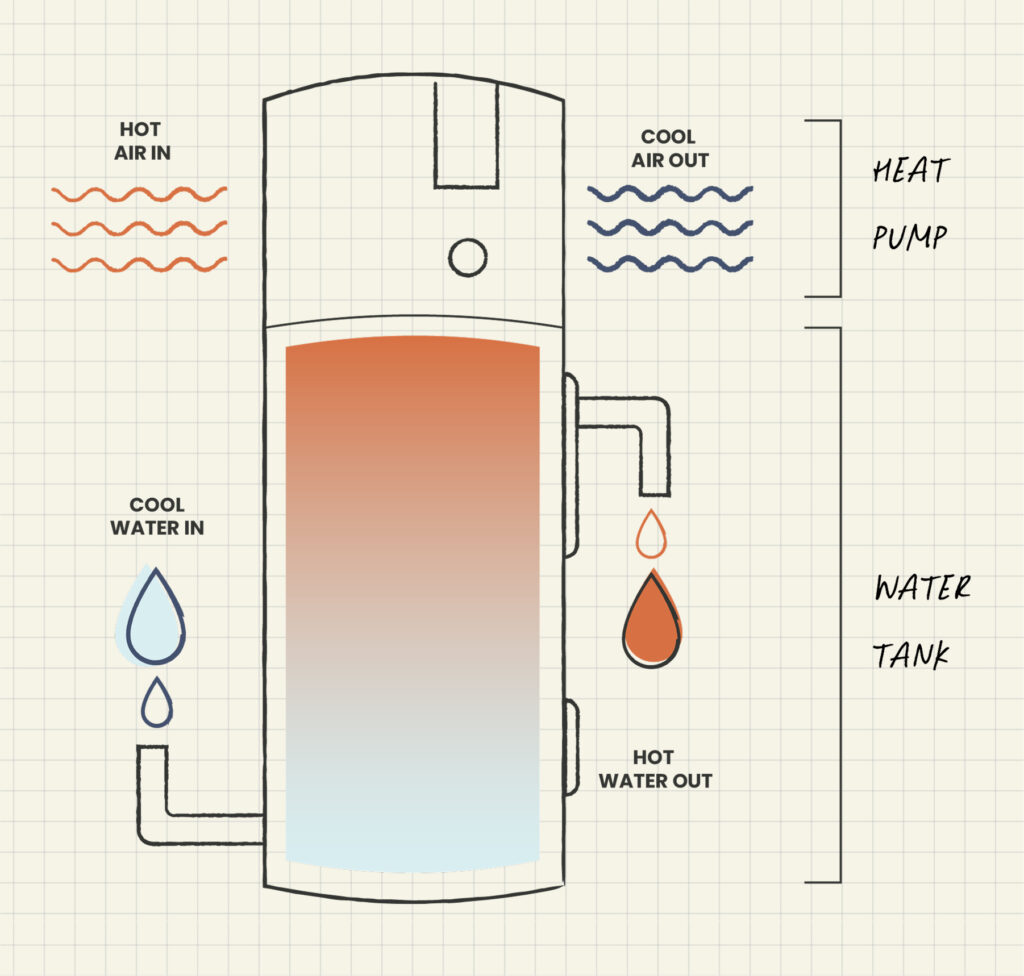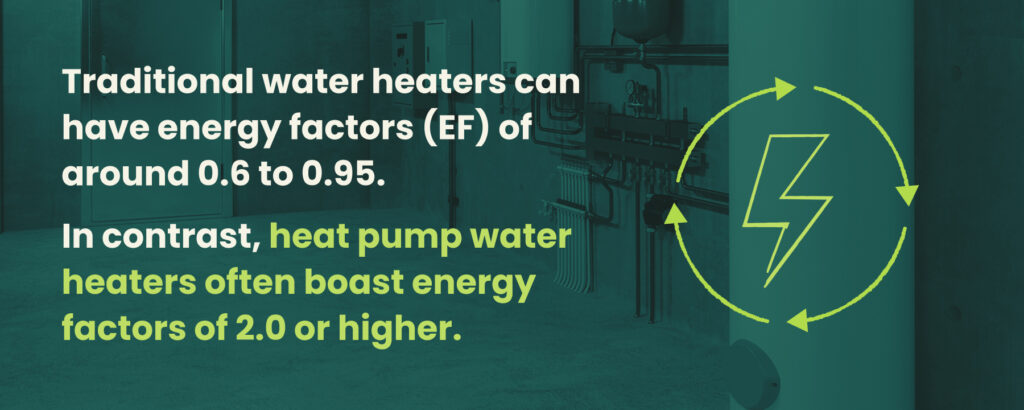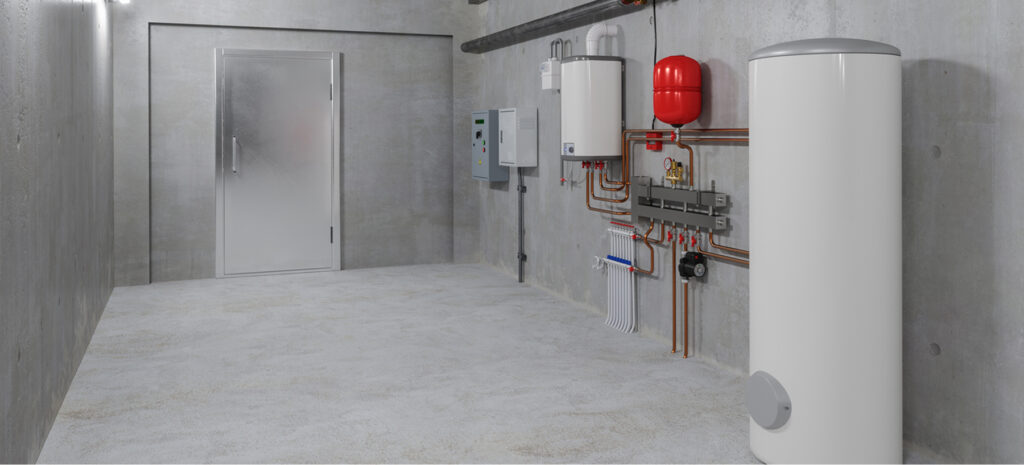As commercial building owners and operators face mounting pressure to reduce energy costs, meet regulatory requirements, and achieve carbon reduction goals, one technology is proving to be a triple win: heat pump water heaters (HPWHs). These systems are not just an energy-efficiency upgrade; they’re a strategic tool in the broader effort of building decarbonization.
At Taper, we partner with a wide range of commercial businesses to implement HPWH systems. From hotels to large enterprise grocers, the benefits have been clear: energy savings, operational cost reductions, and a measurable cut in greenhouse gas (GHG) emissions.

What Are Heat Pump Water Heaters?
Heat pump water heaters use refrigerant gases to move heat rather than generate it directly. HPWHs draw heat from the surrounding air and transfer that heat to the water in the tank via refrigerant gases, instead of using electric resistance or gas to heat water. This makes HPWHs significantly more efficient than conventional systems.
According to the U.S. Department of Energy (DOE), ENERGY STAR certified commercial HPWHs can be two to three times more efficient than standard electric resistance water heaters. That means lower energy use, reduced utility bills, and improved building performance.
The Energy Efficiency Advantage
One of the primary drivers for adopting HPWH technology is its unmatched energy efficiency. Traditional water heaters can have energy factors (EFs) of around 0.6 to 0.95. In contrast, HPWHs often boast EFs of 2.0 or higher.

In a commercial setting where heating is a major operational load—such as hospitality, food service, or multifamily housing—the switch to HPWHs can significantly reduce the carbon footprint. This is particularly important as building performance standards tighten across states like California, Washington, and New York.
While HPWHs may have a higher upfront cost than conventional systems, HPWHs deliver rapid payback through reduced utility bills and long-term operational savings. Taper helps accelerate ROI for many of our customers by helping them navigate incentive layers, from utility rebates to federal tax credits and performance-based paybacks, ensuring every dollar invested works harder.
Building Performance and Real-World Impact
At Taper, we view HPWHs not as a standalone upgrade but as an integral component of a holistic energy management strategy. When paired with other decarbonization tactics—like energy efficiency retrofits, refrigeration upgrades, compliance with benchmarking laws, and proactive incentive capture—the impact multiplies.
HPWHs often serve as a foundational step in building-wide retrofits or compliance upgrades. And HPWHs are delivering in the field. Our work with commercial customers has consistently shown high satisfaction and reliable performance.
Moreover, with quickly evolving building codes and performance mandates, investing in efficient, electrified systems is not just smart—it’s necessary. Cities and states are increasingly mandating electrification of building systems, and HPWHs help commercial properties stay ahead of the curve.
In California, where Taper is headquartered, updates to Title 24 building codes and SB 1477 are pushing building operators toward high-performance, low-emission solutions. HPWHs also help properties meet ENERGY STAR and LEED certification criteria.
Start Your Heat Pump Water Heater Plan
As a mission-based organization, our team works shoulder-to-shoulder with building owners, operators, and trade partners to simplify energy upgrades that make a measurable economic and environmental impact.
Installing HPWHs is one of the most effective and immediate steps commercial properties can take to cut emissions, save money, and improve building performance. As we continue to work with customers in hospitality, retail, grocery, and beyond, we’ve seen the transformative effect this technology can have.
If you’re considering your next energy upgrade, HPWHs could be the cornerstone of your building decarbonization strategy.
Explore the possibilities. Book time with an energy management pro.
